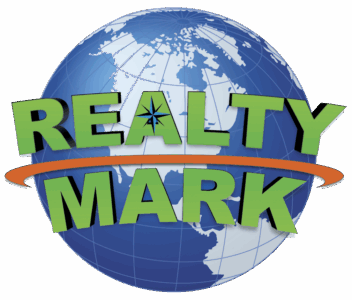Navigating the Complexities of Multi-Family Property Management in New Jersey

Navigating the Complexities of Multi-Family Property Management in New Jersey
Managing multi-family properties in New Jersey presents a unique set of challenges and opportunities. With its dense population, proximity to major urban centers like New York City, and a diverse rental market, the Garden State is a dynamic environment for landlords and property managers. This article delves into the intricacies of multi-family property management in New Jersey, providing a comprehensive guide to navigating the market’s demands while optimizing profitability and fostering a positive living space for tenants.
Challenges and Benefits in New Jersey’s Multi-Family Property Landscape:
Challenges:
- Regulatory Environment: New Jersey has stringent rental laws that can impact profitability and
operational flexibility. Landlords must navigate rent control ordinances, eviction restrictions, and security
deposit laws. - Market Competition: With a high demand for rental units, maintaining a competitive edge
requires constant market analysis and property upgrades. - Maintenance Demands: Older buildings, which are common in New Jersey, often require more
attention and resources toward maintenance and repairs. - Tenant Turnover: High tenant turnover can lead to increased costs and lower annual revenue.
Benefits:
- High Demand: Multi-family units, especially those close to transit hubs and amenities, are in high
demand, leading to potentially lower vacancy rates. - Economies of Scale: Managing multiple units at one location can reduce per-unit costs when it
comes to maintenance and renovations. - Diverse Tenant Base: New Jersey’s cultural diversity offers the opportunity to cater to a wide
range of tenants, potentially reducing vacancy rates.
Actionable Tips for Landlords and Property Managers:
- Stay Informed: Keep abreast of changes in local and state regulations to ensure compliance and
avoid costly fines. - Tenant Screening: Implement a thorough tenant screening process to ensure reliable and long-term occupants.
- Regular Maintenance: Create a schedule for regular maintenance checks to prevent major
repairs and to keep properties attractive to current and prospective tenants. - Community Building: Foster a sense of community among residents to encourage lease renewals
and reduce turnover. - Technology Integration: Use property management software to streamline operations, from rent
collection to maintenance requests.
Relevant Statistics, Legal Considerations, and Market Trends:
- As of the latest data, New Jersey’s vacancy rate is relatively low, indicating strong demand for
rental units. - Legal considerations such as the “Anti-Eviction Act” set forth protections for tenants that
landlords must understand and abide by. - Market trends show a growing interest in amenities like green spaces and high-speed internet,
which can increase property value and attract tenants.
Understanding State and Local Regulations, Tenant Relations, and Maintenance Issues:
- Regulations: Landlords must adhere to the New Jersey Department of Community Affairs
regulations, which oversee multi-family properties. - Tenant Relations: Building positive relationships with tenants can lead to fewer disputes and a
more cooperative living environment. - Maintenance: Proactively address maintenance issues to prevent small problems from becoming
large, expensive ones.
Maximizing Profitability While Maintaining a Positive Living Environment:
- Operational Efficiency: Streamline operations to reduce costs; for example, by using energyefficient appliances to lower utility bills.
- Value-Added Services: Consider offering services such as laundry, storage, or parking at a
premium to increase revenue. - Rent Pricing Strategy: Set competitive rents based on careful market analysis to ensure a balance
between profitability and occupancy rates. - Tenant Retention: Implement retention strategies such as regular engagement and prompt
responses to maintenance requests to reduce turnover costs.
Conclusion:
Multi-family property management in New Jersey is a balancing act between compliance with complex
regulations, maintaining property desirability, and ensuring tenant satisfaction. By staying informed of
legal requirements, adopting efficient management practices, and focusing on tenant relations, landlords
and property managers can navigate the challenges and reap the benefits of the state’s vibrant rental
market. With a strategic approach, multi-family properties in New Jersey can be both a profitable
investment and a positive community for residents.
FOLLOW US ON SOCIAL MEDIA FOR MORE PRO TIPS on Navigating the Complexities of Multi-Family Property Management in New Jersey:
Facebook Instagram LinkedIn YouTube TikTok
